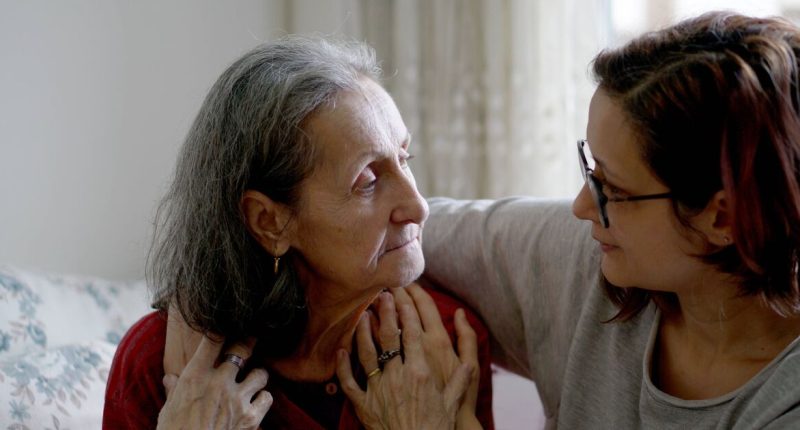Share this @internewscast.com
An expert has illuminated whether cognitive decline can be inherited, at a time when over 944,000 people are living with dementia in the UK. Dr Kellyn Lee, a research fellow and chartered psychologist at the University of Southampton, has spent years researching ageing, mental health and dementia.
In a recent social media post, she answered a question from one of her followers concerning the potential link between cognitive decline and family health. “So, somebody’s asked me this question [about dementia],” Dr Lee said this week.
“‘Does it have anything to do with what you’ve inherited from your parents? Like my dad has heart problems in his family, and my mum’s side mostly Alzheimer’s in her sisters. My mother got vascular dementia.'”
In response, Dr Lee then continued: “The research doesn’t show that sort of the more common types of dementia, like Alzheimer’s and vascular dementia, there don’t seem to be those hereditary links as there are with the rarer types of dementia.
“So, the rarer types of dementia, there are genetic links between those, but not necessarily with the most common types of dementia, such as Alzheimer’s and vascular.”
Dr Lee’s perspective aligns with the Alzheimer’s Society, which acknowledges that while a majority of dementia cases are not inherited, certain gene mutations can play a role in a small subset of instances.
This generally includes Huntington’s disease, Familial Prion disease and Familial Alzheimer’s disease, with the latter often referred to as young-onset dementia. Both Huntington’s disease and Familial Prion disease carry a 50/50 chance of inheritance due to the presence of a ‘single faulty dominant gene’.
“The good news is that these kinds of dementia are very unusual,” advice from Alzheimer’s Society claims. “In general, the earlier a person develops Alzheimer’s disease, the greater the chance that it is due to a faulty inherited gene.
“So in the really rare cases of a person developing Alzheimer’s disease in their 30s and 40s, it’s almost always because of a faulty gene.” In more typical instances of dementia, genes only play a minor role among many other characteristics.
Indeed, it’s estimated that 45% of dementia cases could potentially be prevented by addressing 14 modifiable risk factors at different life stages. Last year, Oxford University scientists also discovered that lack of physical activity, alcohol consumption, and exposure to pollution were among the factors that could heighten dementia risk after analysing 40,000 brain scans.
Professor Gwenaëlle Douaud, who led the study, previously said: “We know that a constellation of brain regions degenerates earlier in ageing, and in this new study we have shown that these specific parts of the brain are most vulnerable to diabetes, traffic-related air pollution − increasingly a major player in dementia − and alcohol, of all the common risk factors for dementia.
“We have found that several variations in the genome influence this brain network, and they are implicated in cardiovascular deaths, schizophrenia, Alzheimer’s and Parkinson’s diseases, as well as with the two antigens of a little-known blood group, the elusive XG antigen system, which was an entirely new and unexpected finding.”
Find out about the symptoms you need to watch out for and get health advice with our free health newsletter from the Daily Express
What are the earliest signs of dementia?
Dementia encompasses various conditions associated with persistent cognitive decline. Initial symptoms often include:
- Mood changes
- Difficulty concentrating
- Finding it hard to carry out familiar daily tasks, such as getting confused over the correct change when shopping
- Memory loss
- Struggling to follow a conversation or find the right word
- Being confused about time and place
If you or a loved one are experiencing these symptoms, it is essential to consult a GP for guidance and support.











